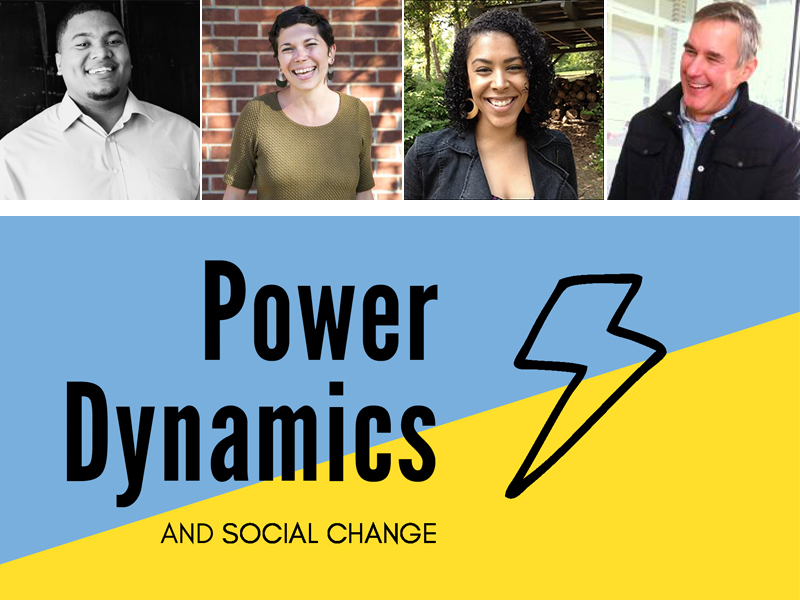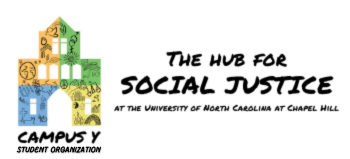
What are power dynamics? How do they show up in your work, consciously or unconsciously? How can you shape and shift them? Learn more about our panelists below, and listen in above!
Micah Gilmer | Senior Partner, Frontline Solutions
Micah Gilmer is a researcher and writer who helps Frontline understand how the social technologies of racism and patriarchy create inequitable American systems. He works with clients to design research processes, build strong organizational cultures, and evaluate impact. Micah led the development of Frontline’s seminal report “Why We Can’t Wait” and contributed to “Gender Norms: A Key to Improving Outcomes Among Young Latinas.” His work has positioned Frontline as a national thought leader on issues of race and gender. Prior to leading at Frontline, Micah completed a Ph.D. in cultural anthropology at Duke University. His research is featured in the forthcoming book The Big Black Man Rules: Race, Manhood, and the Education of Black Boys. He also examined the connections between Zulu hip-hop, politics, and opportunity in Soweto, South Africa. He graduated from the University of North Carolina at Chapel Hill in 2004.
Madison Hayes | Executive Director, Refugee Community Partnership
Madison Hayes is a North Carolina native and the Director of the Refugee Community Partnership (RCP), where she works with refugee leaders to develop community-driven models for refugee support work in NC. After a decade of working in nonprofit, international NGO, and social service, Madison’s work is rooted in an analysis of social and institutional power and oppression to examine and transform relationships between service organizations and agencies and the communities they claim to serve. Madison believes that disenfranchised communities are the experts of their own experiences, and centers their wisdom and expertise particularly in dominant culture spaces. Before the RCP, Madison directed the community engagement office at the Center for AIDS Research, where she worked to educate about and challenge the legacies of exploitation between research institutions and the communities they research, and to develop more ethical relationships between them. Madison brings her popular education experience as a trainer in social justice, structural power and oppression, historical and economic disenfranchisement, and Critical Whiteness to the University of North Carolina at Chapel Hill, and mentors graduate and undergraduate students engaged in community service work.
Danielle Spratley | Chief Architect, Village of Wisdom
Danielle Spratley (she/her) is the Director of Programs and Strategy for Village of Wisdom (VOW), a nonprofit based in Durham, NC, that holds space for Black families to address racism in education. Before joining VOW’s team, Danielle was an AmeriCorps Program Director at MDC—where she also initiated ongoing internal racial equity work—and a youth and family advocate with Youth Advocate Programs. In her free time, Danielle works as an independent consultant with groups and organizations that seek to build an intersectional analysis, with a particular focus on race, class, gender, and sexual orientation. Danielle is a class of ’14-’16 William C. Friday Fellow for Human Relations, a coach for Bull City Roller Derby, and an award-winning poet. She holds degrees from Princeton University (BA) and Hollins University (MFA). Danielle lives in Durham, NC, with her partner, Becca, and their dogs, Goosebumps and Cedar.
Blake Strayhorn | Executive Director, Durham Habitat for Humanity
As Durham Habitat’s chief executive, Blake is leading efforts to significantly expand Habitat’s operations and to increase our impact in Durham. Blake came to Habitat after 20 years of banking, e-commerce, and entrepreneurial success with companies like Wachovia, Eurosport Soccer, and Cherokee Partners.Blake received an undergraduate degree and an MBA from UNC-Chapel Hill, and he and his wife, Dell, have two sons who are currently students at UNC-CH. Habitat’s construction staff is amused that Blake and his boys reconstructed a 12’X18’ log cabin in their backyard with very limited help from a square or a level.
